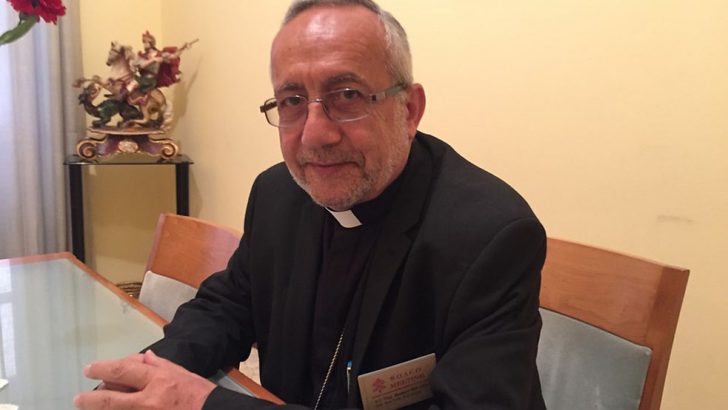As Armenia and Azerbaijan continued their battles and bombardments in early October, an Armenian archbishop pleaded for the intervention of the European Union to halt the conflict before it grew into a regional war.
“We don’t want advice about a cease-fire, but real concrete steps so that the aggression stops definitively,” Armenian Catholic Archbishop Raphael Francois Minassian told SIR, the news agency of the Italian bishops’ conference.
“In the region, there is an intersection of strong interests in petroleum and gas” by several nations. “Everyone has their business,” said the archbishop, who is based in Ghiumri, Armenia. “So, I want to say: don’t play with the lives of the people of Armenia and Azerbaijan.”
Since 1988 Armenia and Azerbaijan have had an undeclared war over the territory of Nagorno-Karabakh, which lies inside Azerbaijan, but has an ethnic Armenian majority.
Clashes
A fresh series of clashes erupted September 27, involving more than the sporadic shooting incidents the region’s people had become used to. More than 300 people – mainly members of the military – were killed in the first 10 days of fighting and tens of thousands of civilians have fled Nagorno-Karabakh.
On both sides, Archbishop Minassian said: “There are innocents who are dying, and all of this is happening because of dirty politics that no one is able to stop. Please, enough!”
For decades, the Organisation on Security and Cooperation in Europe has been trying to negotiate a permanent resolution to the conflict through its Minsk Group, a body made up of the foreign ministers of France, Russia and the United States. They issued a statement October 2 to “strongly condemn the continued violence in the Nagorno-Karabakh conflict zone as well as against targets in the territory of Armenia and Azerbaijan away from the ‘Line of Contact.’”
The three foreign ministers added: “Targeting or threatening civilians is never acceptable under any circumstances.”


 Archbishop Raphael Francois Minassian
Archbishop Raphael Francois Minassian 